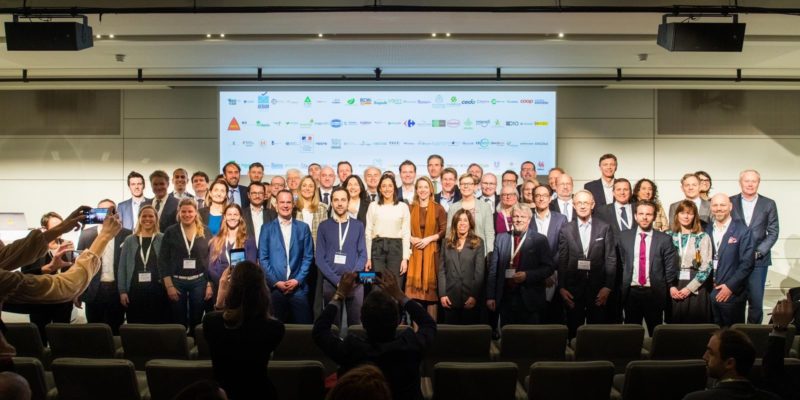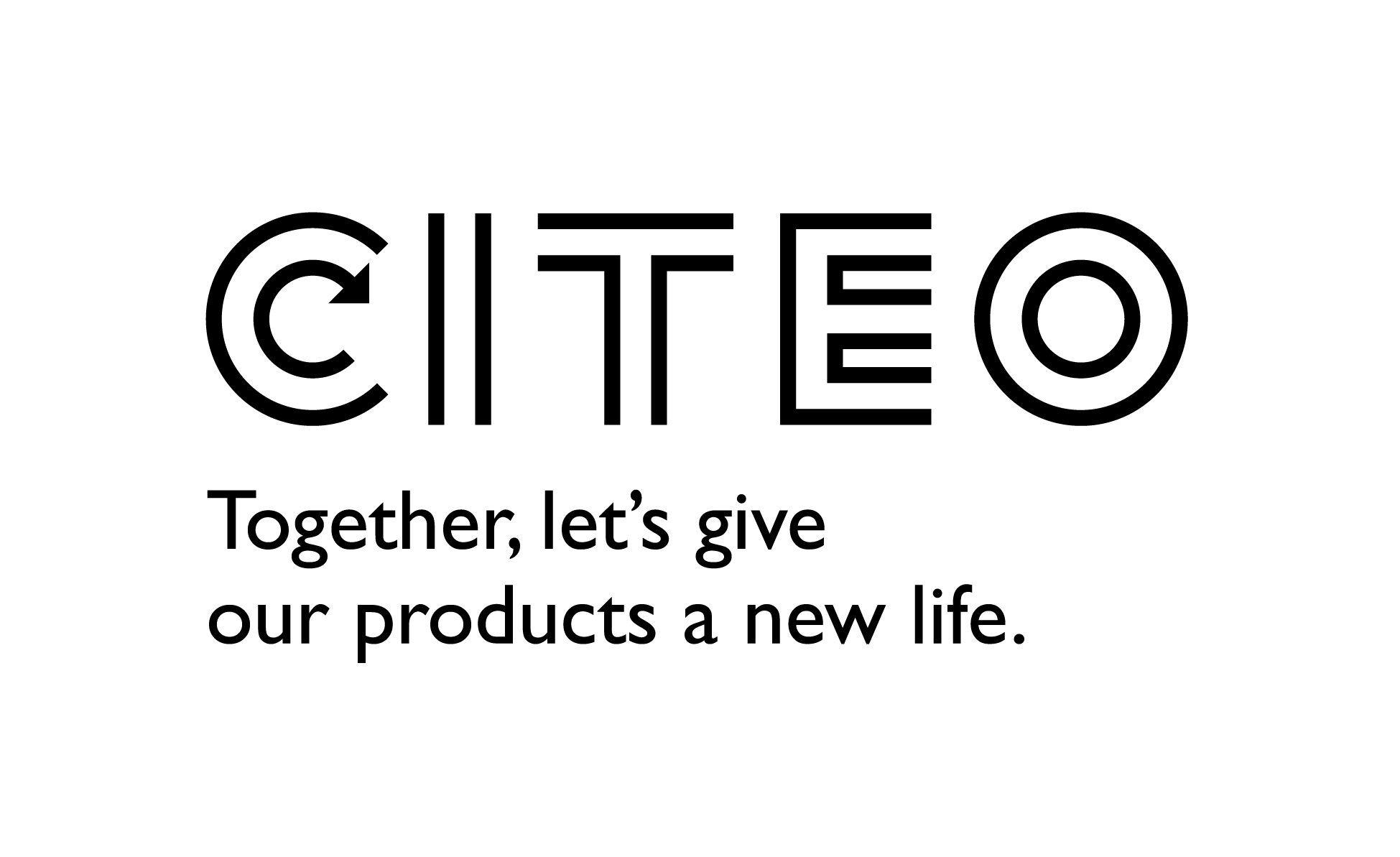Citeo, the French company in charge of Extended Producer Responsibility (EPR) for household packaging and graphic papers, fully supports the European Commission’s vision of the need to move towards a circular economy, encouraging materials to become not waste but economically, socially and environmentally beneficial resources.
Towards a Circular plastics’ approach
Citeo has understood the need to be more involved in the Circular economy debate on the European level, that is why it contributed to the work of the European commission’s Circular Economy Package and the SUP Directive through the working groups and the public consultations, was present in the Circular Economy missions to Mexico and Nanjing and was active within the Circular Plastics Alliance.
Citeo believes in the involvement of all the actors of the value chain from public authorities to brand owners in order to build a truly Circular Economy with, measures to reinforce competitiveness of recycled material opposite to virgin materials, a common vision on recyclability, on reusable models and on littering issues, sharing the vision that post-consumer plastic is a “resource” and not a “waste” anymore.
This vision requires not only the commitment of all actors, but also coherence and harmonization at the European level for both standards and targets. This is a key factor for future investments in eco-design as well as new technologies of recycling.
Therefore, Citeo as a supporting organization, signed the European Plastic Pacts on 6th of March along with 14 governments and more than eighty other companies; to push forward a coherent European vision on plastics, eco-design and eco-modulation on plastics packaging with concrete Life Cycle Analysis to help European actors to reach our common target for a carbon neutral economy in 2050. This European plastics pact is a unique opportunity for governments and businesses to work together for a greener future, and a major step towards creating a circular economy for plastics.

Participants of the European Plastics Pact have set multiples targets by 2025:
- Design all plastic packaging and single-use plastic products placed on the market to be reusable where possible and in any case recyclable by 2025;
- Move towards a more responsible use of plastic packaging and single-use plastic products, aiming to reduce virgin plastic products and packaging by at least 20% (by weight) by 2025, with half of this reduction coming from an absolute reduction in plastics;
- Improve collection, sorting and recycling by increasing the collection, sorting and recycling capacity by at least 25 percentage points by 2025 and by reaching a level that corresponds to market demand for recycled plastics;
- Increase the use of recycled plastics in new products and packaging by 2025, with plastics using companies achieving an average of at least 30% recycled plastics (by weight) in their product and packaging range.
Towards a circular and European loop for packaging and papers
Moreover, the European Commission just launched a Green deal with a new European action plan on Circular Economy published on the 11th March 2020 along with the new European Industrial Strategy. This action plan will speed up the EU’s transition towards a circular economy by strengthening the European industry while helping to fight against climate change and preserving the EU’s natural environment.
The Circular Economy Strategy is a pillar for industrial competitiveness in the Single Market today, promoting a paradigm shift from a linear to a circular production and consumption model, ensuring a consistent approach on EU environment, climate & energy and industry policies and promoting an ambitious resource-efficient production and consumption model to modernize EU industry and set high standards.
Citeo’s views for the implementation of the circular economy of packaging and paper in the European single market
First, Citeo believes that the Commission should adopt a coherent vision between reduction and recycling-reusable systems of packaging with common life cycle analysis standards and viable impact assessment from the economic and environmental sides.
Citeo also thinks that the notion of “recyclability” which requires a national collection, sorting and recycling stream should be defined at the EU level. A coherent and consistent definition of recyclability constitutes a prerequisite in order to make EPR organisms such as Citeo able to emit recyclability certificates. Citeo believes it is necessary for EPR organizations to have guarantee that packaging waste which are defined as recyclable at the EU level are effectively being recycled.

Regarding the promotion of transparent and harmonized standards regarding the environmental footprint and material content of product and packaging, it is important to remind that measures on the communication of the environmental footprint of products have been adopted in France with the new law on Circular economy adopted in February 2020. While Citeo acknowledges these national efforts, it believes that this discussion should be held at European level.
While market forces should be allowed to shape business decisions and as we recognize that regulation should be the least burdensome, market forces alone have not been sufficient to create incentives for decarbonization or foster the circular economy in Europe. In order to answer the challenge of competitivity between Primary and Secondary Raw Materials, Citeo believes it is essential to move towards a more circular and ecological tax system within the Member states and at the EU level. The Commission should work on the introduction of economic incentives, such as a new taxonomy, with a common and a coherent vision of the translation of this measure at the national scale, in favor of recycled materials. This taxonomy should take into consideration negative externalities related to the extraction of virgin materials and must provide possible ways to offset market losses related to commodity price fluctuations.
Citeo thinks that a coherent Secondary Raw Materials (SRM) market should be created in Europe in line with existing regulations and legislations on chemicals.There are many opportunities and benefits for the environment and consumers derived through the market for SRMs. However, risks associated with the presence of substances of concerns in goods produced from SRMs are relevant, especially when they are used for food packaging. In this regard Citeo believe it is important to align existing regulations and legislations on chemicals (eg. REACH), waste and products in order to guarantee that products and packaging are exempted from substances of concerns.

In order to effectively promote a transition towards a circular economy, Citeo believes that public investments should be targeted in the field of circular economy. Those investments should especially be focused on packaging and papers through the funds of the European Investments Bank and the Just Transition Mechanism presented by Ursula von der Leyen. Investments should promote and develop new recycling channels and technologies, especially for plastics packaging; research and development for recyclable food contact materials; innovative business models such as the ones promoted by Citeo with its “Circular Challenge”.
Moreover, the mobilization of the consumer-citizen is essential for the implementation of the circular economy action plan. This mobilization must be translated at European level by giving consumers, at national level, the means to act, thanks to clear and complete information on their sorting gesture but also to new information essential for improving the environmental impact of their consumption, in particular information on the recyclable nature of packaging.
Finally, Citeo is willing to collaborate with the European stakeholders and the European commission on developing new recycling solutions at the EU level in order to reach the recycling targets. Completing mechanical recycling technologies with chemical recycling technologies, in order to better recycle complex and multilayered materials, should be considered as a solution at the EU level.


















